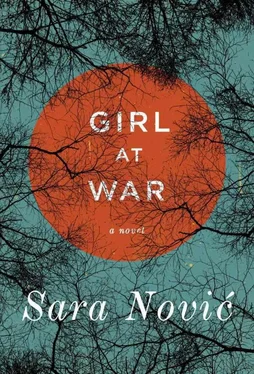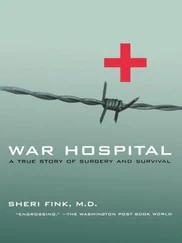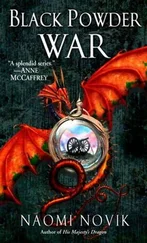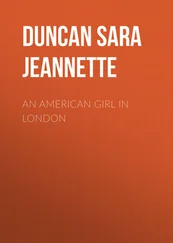The Presidential Palace was rocketed two days later. In the shelter my schoolmates and I waited for the all-clear to release us from the confines of mildew and shadows. This shelter had bunk beds stacked three high, and while waiting for our turn on the generator bike we’d made a game of clambering to the top level and jumping off, measuring our success by the volume of the smack our sneakers made against the cement floor. Our teacher, normally quick to snuff out such athletic outbursts, gave us a stern command not to break any bones but let us continue. Something was taking longer than usual. I glanced sidelong at the butcher, self-nominated guardian of the door, his flabby form swaddled in a bloody apron. A handheld police scanner protruded from his front pocket, and he whispered with the cashier from the shop next to his. Then, almost frantically, he spun around and fumbled with the door latches, his thick hands moving faster than I’d ever seen them work behind his counter.
“Did you hear the signal?” Luka asked. I hadn’t, but the door was open and the push of the crowd toward the stairs overpowered the spindly legs of children. Besides, we didn’t want to miss out on the excitement. My classmates and I pressed against one another as we mounted the steps toward daylight.
At first, the smell. The earthy scent of burning wood, the chemical stink of melted plastic, the stench of something sour and unfamiliar. Flesh, we’d learn.
Then the smoke: three burgeoning columns above the upper town, broad and dense and dark red.
It was not anxiety or excitement now, but real fear. I felt dizzy, as if someone had tied a rope around my middle and squeezed out all my air. Somewhere behind us our teacher was shouting instructions for us to go home. Still, everyone who’d emerged from the shelter moved as one toward the explosion. I grabbed for Luka’s hand; a girl beside me clutched a clump of my T-shirt, and the others joined until our whole class had formed a disorderly human chain. It was scarier now to separate than to walk into a city on fire.
We reached the base of the stone steps that led to the upper town, toward Banski Dvori. The police had already blocked off the stairways, so we weaved through the adult crowd, pushing ourselves up onto a cement ledge to get a better view. My father worked in the transportation office in the upper town some days, though now I couldn’t remember which. It wasn’t close enough for him to have been hurt in this explosion, was it? In the haze it was impossible to tell, and I scanned the faces of all the broad-shouldered men in sight, but did not find him.
Fragments of conflicting reports churned around us:
“Have you heard? The president exploded right at his desk!”
“Come on, they’ve had him in a bunker since last week.”
“Have you heard? His wife was inside, too!”
A voice from behind: “Are you kids up here alone?” My classmates and I were startled to find someone talking to rather than over us, the same shock of nerves firing as if we’d been caught sharing answers to a math test. I spun around to see a newsman wielding a large microphone and fiddling with a wire in his ear. He wore a gray vest with a sheen of nylon and metal.
“We’re not alone,” I said. “My dad just—”
“What’s it to you?” Luka cut in, puffing out his chest to mimic the man’s bulky vest. The reporter, whose cameraman had come over to get a shot with the children, now stuttered.
“You should be at home,” he said, his apprehension exposing a French accent. His revealed foreignness dissolved any remaining authority.
“You should go home, stranac ,” I said, emboldened. My classmates giggled, and I reveled in the girls’ acceptance, if only momentary. I was brave, powerful even.
“ Stranac, stranac ,” my classmates chanted. One of them threw an apple core, and it bounced off the newsman’s padded shoulder.
“Oh, what do I care if you all blow up, you gypsy vermin!” he said. He motioned his cameraman to move a few feet over so we were out of the picture and began to refilm his report.
Another explosion rumbled near the palace, then rippled down the hill through the concrete. A crack, thin as a strand of hair, bloomed across the ledge beneath our feet. Home suddenly didn’t sound like such a bad idea. We took off, Luka and I sprinting down Ilica Street before our paths diverged.
“Good luck!” I called as we split. It seemed afterward like a stupid thing to say, but another string of ambulances rounded the corner, sirens screaming as they passed, and if he replied I didn’t hear.
I arrived home hyper and smelling of fire, swinging the door open with such force that I enlarged the dent, born of similar displays of overzealousness, in the opposite wall.
“Where were you?” my mother yelled from her bedroom, sounding frantic.
“At the shelter. Haven’t you heard about Banski Dvori?”
I had expected her to hold me tightly like she had after the first air raid, but instead she looked me over and said, “You stink . God, Ana, why can’t you play with girls?” then slipped back into her room. I followed her a few steps and leaned in her doorway. Though it seemed like an odd reaction, I recognized it as the bait to engage in a well-worn argument; she wanted me to chat and jump rope, bake things; I wanted to ride my bike, swim in the Sava, play football. I loved the feeling of dry mud cracking on my arms and the grass-stained knees of my jeans, felt important when my clothes carried the traces of my daily activities. Almost all my possessions, including my bicycle, were castoffs of a boy who lived one floor up in our building. If my mother was disappointed by my tomboyish tendencies, she may have found solace in the fact that nearly everything sustaining my existence was free.
The path of hand-me-downs was a complex web that connected neighbors and strangers across the city. I always wondered who it was that was buying everything in the first place, imagined some royal family at the top of the chain purchasing piles of clothes and spreading them throughout different family networks. In the streets we occasionally glimpsed familiar T-shirts within our circles of friends, though we had an unspoken agreement not to mention it. On the weekends we spent our mornings scrubbing the stains from our new old clothes, wringing out each other’s memories.
“Girls were there,” I said under my breath.
But my mother didn’t fight back, continued flitting around her room looking busy. She moved a pile of student work from her nightstand to her desk, straightened the pencils standing at attention in a coffee mug nearby. This was a surefire indicator that something was wrong. I’d noticed Rahela lying on my mother’s bed before, but now I took a closer look. She was propped against a stack of pillows, the bib at her neck stained slightly red.
“Mama? Is that blood?”
Rahela coughed, the dribble at her lip tinged a foreboding pink.
“It’s the new medicine. Dr. Carson said it might happen.”
“Does that mean it’s working?” I said. My mother slammed her dresser drawer.
When my father got home my parents argued. They shouted about doctor bills and border crossings, about Banski Dvori and the shelters and America. They shouted about Rahela, then about me.
I held Rahela and paced the living room. The yelling seeped through our shared wall.
“I’m tired of waiting. I’m tired of you telling me to wait,” my mother said.
“What do you want me to say? We have no other choice except to see if the medicine works.”
“It’s not working. We need to go.”
“We can’t get visas if we’re a flight risk.”
“We have steady jobs. We have a flat.”
“The city is burning, Dijana. We’re a flight risk.”
Читать дальше












